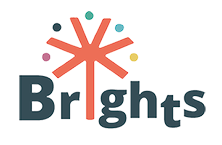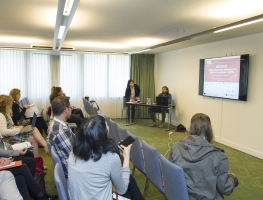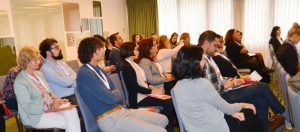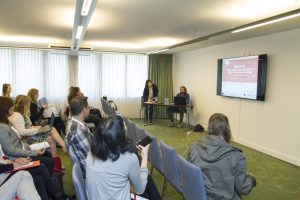Recommendations from the BRIGHTS project
Moderators: Barbara Quarta, ALL DIGITAL; Luca Pagliaricci, Centro Studi Foligno
The current global scenario requires education and training institutions to assume greater responsibility than ever in helping learners of all backgrounds to develop into informed, critically literate, socially-connected, ethical and engaged global citizens. Nowadays, it is crucial that we give young people the competences and the voice to share their own perspective in a globalised society.
The topic of the session was implementing Global Citizenship Education (GCE) among young people using digital storytelling in formal and non-formal education. Experience, lessons learnt and recommendations from the BRIGHTS project were presented.
Barbara Quarta introduced and moderated the session, while Luca Pagliaricci shared his experience as a BRIGHTS national tutor in Italy. Moderators presented the findings from the BRIGHTS Experimentation Report, which summarises the results of the implementation of the BRIGHTS MOOC and face-to-face workshops in the project countries. Few examples of BRIGHTS digital stories produced by young people were also shown during the session. The young authors who took part in the session, talked about their experience. Session participants discussed how the methodology and results can be disseminated, scaled, and used by other digital competence centres or networks.
See the PowerPoint presentation used during the session here (.pdf)
How the BRIGHTS methodology and results can be used by other digital competence centres?
- The full BRIGHTS blended training course (MOOC + F2F workshops) can be localised and fully integrated in the training offer of digital competence centres working with young people.
- The BRIGHTS MOOC can be localised and integrated with new contents (on different topics).
- The project methodology can be used focusing only on a specific selected topic: e.g. sustainable development, human rights or hate-speech by producing online hate-speech counter-narratives.
- The project methodology can be adapted to a different target group: e.g. promoting social inclusion of refugees and migrants or other groups at risk of social exclusion.
- The project methodology can be used in digital competence centres to train e-facilitators working with adults and young people.
- The BRIGHTS digital stories can be used to raise awareness on GCE topics through a national or European online/offline campaign.
- The project methodology can be scaled up: BRIGHTS results can be complemented with other results from other local/national/European projects or initiatives and tested in different countries.
- Further funding opportunities can be identified at national and European level to further promote GCE and digital storytelling.
Participants concluded that the BRIGHTS methodology is very innovative and has a lot of potential for scaling up in different contexts and with different target groups.
For further interaction, ideas and communication, visit the online community on Global Citizenship Education on UNITE-IT. The community has over 100 members and anybody interested in the topic is invited to join.



